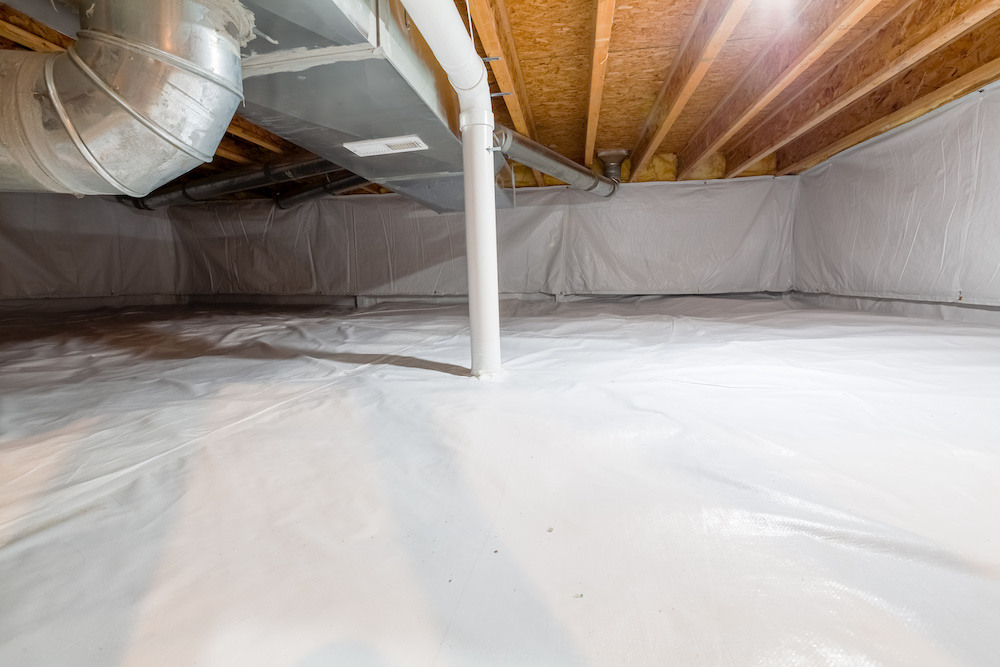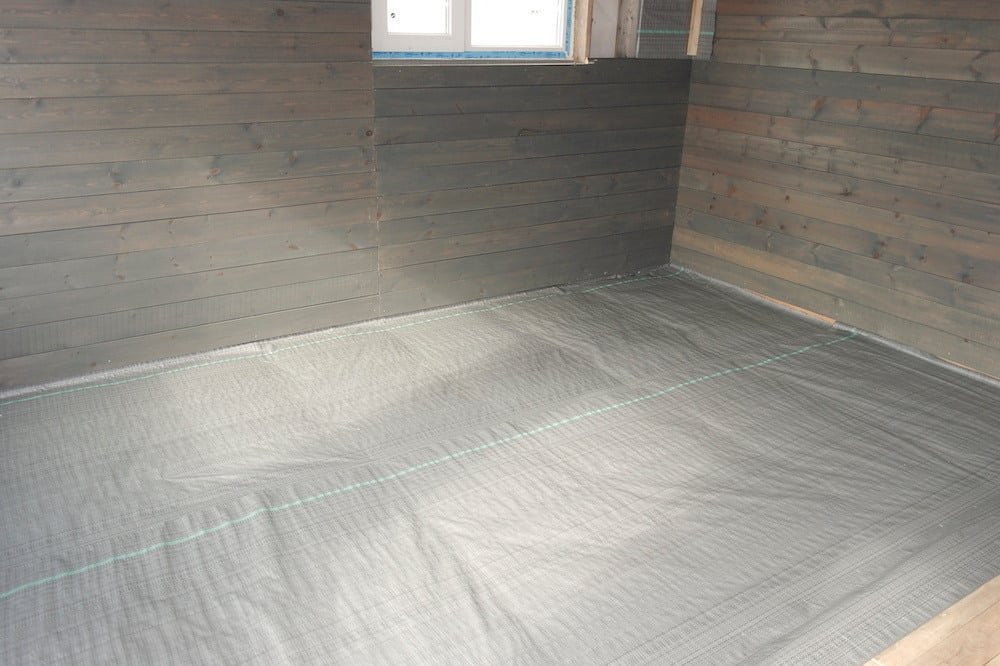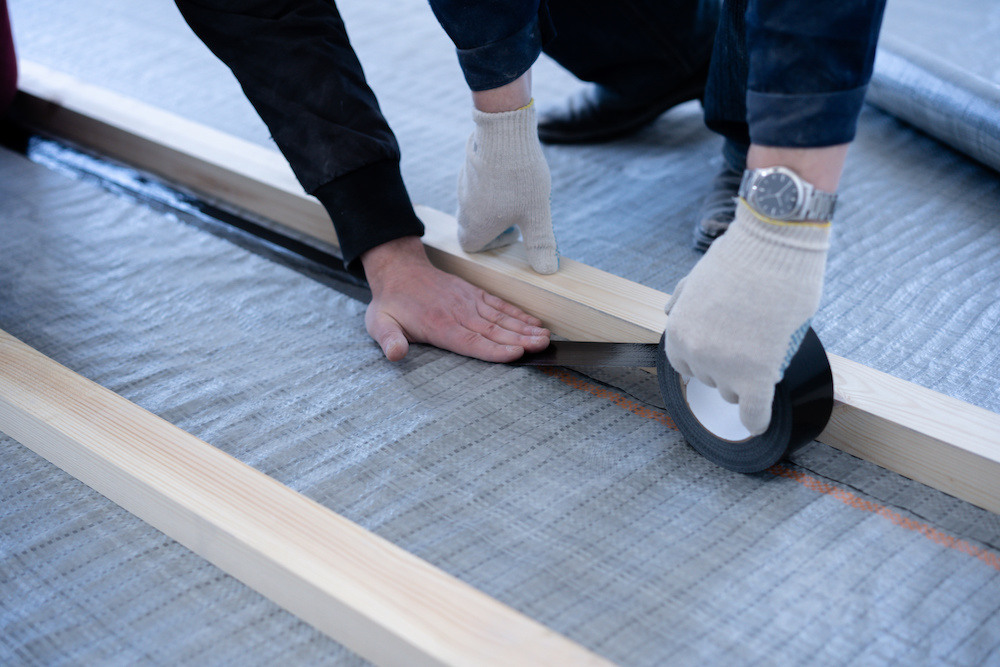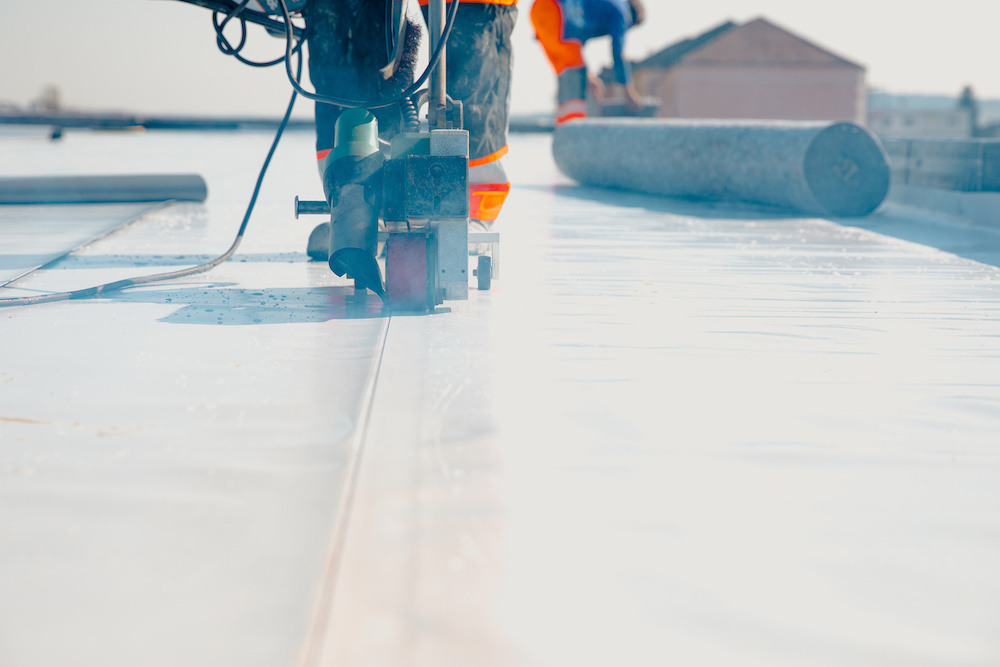When it comes to flooring installations, one overlooked but crucial aspect is the consideration of moisture. Moisture can wreak havoc on various flooring materials, causing warping, buckling, and even mould growth.
A moisture barrier is necessary to safeguard your investment and ensure the longevity of your flooring. We'll delve into what a moisture barrier is, its importance, and when it's needed to preserve the integrity of your floors.
What Are Moisture Barriers?
A moisture barrier, also known as a vapour barrier, vapour retarder, or vapourdiffusion retarder, is a material designed to impede the passage of and control moisture content through floors. It acts as a protective layer between the subfloor and the flooring material, preventing water vapour from infiltrating and causing damage. These barriers come in various forms, including sheets, rolls, coatings, and other flexible materials, each tailored to specific flooring types (such as concrete floors) and environmental conditions.
These barriers are categorized into three distinct classes, each offering varying levels of effectiveness in impeding the passage of water vapour. Class 1 encompasses thicker sheet materials with superior vapour resistance, including glass, sheet metal, polyethylene sheets, and rubber membranes. In Class 2, which features materials with good vapour resistance, you can find unfaced expanded or extruded polystyrene, 30-pound asphalt-coated paper, plywood, and bitumen-coated kraft paper. Lastly, Class 3 includes materials with moderate vapour resistance, such as gypsum board, unfaced fibreglass insulation, and cellulose insulation.
Why Do Moisture Barriers Matter?
Prevents Moisture-Related Damage
One of the primary roles of a vapour barrier is to protect flooring materials from the adverse effects of moisture. Wood (wood floors), laminate, and engineered flooring, in particular, are susceptible to warping and swelling when exposed to excess moisture. A vapour retarder acts as a shield, preventing water vapour from penetrating and compromising the structural integrity of the flooring.
Preserves Flooring Aesthetics
Moisture-related issues not only affect the structural aspects of flooring but also impact its aesthetic appeal. Hardwood floors, for instance, can develop unsightly stains and discoloration when exposed to increased moisture levels over time. By installing a vapour barrier, you safeguard the beauty of your floors, ensuring they remain visually appealing for years to come.
Mitigates Mould and Mildew Growth
Moisture not only damages the flooring (such as concrete floors) but also creates an ideal environment for mould and mildew to thrive. These unwanted guests not only compromise indoor air quality but can also pose health risks. A vapour barrier is a proactive measure, preventing conditions conducive to mould and mildew growth and safeguarding the health of your home and its occupants.

Enhances Longevity and Durability
Flooring is a significant investment, and protecting it from moisture and water vapourensures its longevity and durability. Whether you have hardwood, laminate, vinyl, or carpet flooring, a moisture barrier adds an extra layer of defence against environmental elements, ultimately extending the lifespan of your floors.
When You Need Moisture Barriers?
Concrete Subfloors
Concrete is porous and can absorb ground moisture. When installing flooring materials like hardwood, laminate, or vinyl over a concrete subfloor, a moisture barrier is essential to prevent moisture migration from the concrete to the flooring. This is especially crucial in basement floors or ground-level installations where the risk of moisture infiltration is higher.
Basements and Crawl Spaces
Basements and crawl spaces are notorious for high humidity levels and potential moisture problems. Installing a moisture barrier in these areas is a preemptive measure to control moisture seeping through the concrete or soil. This is particularly important for homeowners looking to convert basements into living spaces or use crawl spaces for storage.
Humid Climates
Humid areas pose a constant threat to a lot of flooring material compared to those in cold climates. The ambient moisture-laden air can permeate through subfloors and affect the flooring above. In such climates, using a moisture barrier becomes imperative, regardless of the type of flooring, to create a barrier against atmospheric moisture.
Wood and Laminate Flooring
Wood floors and laminate flooring are highly susceptible to moisture damage. A moisture barrier prevents issues like expansion, contraction, warping, and wood rot, whether it's solid hardwood, engineered wood, or laminate planks.

High-Rise Buildings
Buildings with concrete subfloors in high-rise structures are susceptible to moisture intrusion from the ground and atmospheric conditions. Installing a vapour barrier in such environments becomes crucial to protect not only the flooring but also the structural integrity of the building.
How to Select the Right Moisture Barrier for You
Selecting the appropriate moisture barrier depends on factors such as the type of flooring, the subfloor material, and the environmental conditions. A vapour barrier with a low perm rating is recommended for concrete subfloors to block moisture effectively. Additionally, some flooring materials come with built-in moisture barriers or underlayment options designed specifically for moisture protection.
When it comes to vapour barriers, there isn't a one-size-fits-all solution. Different types of flooring and environmental conditions demand specific moisture barrier materials. Here are some common types:
Polyethylene Sheeting
Polyethylene sheeting is a widely used and cost-effective vapour barrier. Available in rolls, this plastic sheeting is laid over the subfloor before flooring installation. It effectively blocks moisture from rising through the floor. Polyethylene sheets are commonly used in concrete subfloor installations and are available in various thicknesses, with thicker sheets offering higher resistance to moisture.

Bitumen-Coated Kraft Paper
This type of vapour barrier is commonly used under hardwood flooring. Bitumen-coated kraft paper comes in rolls and is designed to inhibit moisture transfer from the subfloor to the wood flooring. It also provides a smooth surface for the flooring installation and helps reduce squeaks by minimizing friction between the subfloor and the hardwood.
Rubberized Asphalt Membranes
Rubberized asphalt membranes are versatile vapour barriers suitable for various flooring types, including wood, laminate, and vinyl planks. These rubber membranes come in rolls or sheets and feature a rubberized asphalt layer that adheres to the subfloor, creating an effective barrier against moisture. The added flexibility of rubberized asphalt makes it an excellent choice for uneven subfloors.
Epoxy Moisture Barriers
Epoxy moisture barriers are applied as coatings directly onto concrete subfloors. These coatings create a seamless and durable moisture-resistant layer. Epoxy barriers are especially effective in areas prone to heavy moisture, such as basements and high-rise buildings. They not only prevent moisture intrusion but also provide an additional level of protection against chemical and environmental damage.
Cork Underlayment
Cork underlayment serves a dual purpose: it provides both moisture resistance and sound insulation. It is commonly used under laminate and engineered wood flooring. The natural properties of cork make it resistant to microbial growth, adding an eco-friendly element to moisture control.
Aluminum Foil Vapour Barriers
Aluminum foil vapour barriers are ideal for installations over concrete subfloors. The foil layer reflects heat and moisture, preventing them from reaching the flooring material. These barriers are often used in conjunction with other underlayment materials to create a comprehensive moisture defence system.
Moisture-Resistant Underlayment
Some flooring materials come with built-in moisture-resistant underlayment. These underlayments are specifically designed to address moisture concerns associated with the particular type of flooring. They often feature materials like high-density foam or rubber that resist moisture and provide added support and insulation.

Composite Underlayments
Composite underlayments combine multiple materials to create a comprehensive vapour barrier. These may include combinations of foam, film, and other materials to provide adequate protection against moisture infiltration. Composite underlayments are versatile and suitable for various flooring types.
What Moisture Barrier Should You Opt With?
Selecting the appropriate moisture barrier depends on the specific requirements of your flooring installation. Factors such as the type of flooring, subfloor material, and environmental conditions should guide your choice. Consulting with flooring professionals or manufacturers can provide valuable insights into the most suitable moisture barrier for your home construction project.
In Need of Property Damage Restoration? Call PuroClean Today!
When unforeseen disasters strike and leave your property in disarray, swift and effective restoration is paramount. PuroClean is a trusted partner in times of crisis, offering comprehensive property damage restoration services. Whether it's water damage restoration, fire damage, mold infestations, or other emergencies, our highly skilled and compassionate team is ready to respond 24/7. With cutting-edge technology and a commitment to restoring your property and peace of mind, we bring expertise to every restoration project. Call us today at [phone_number] or visit our online office locator to find your nearest location.
